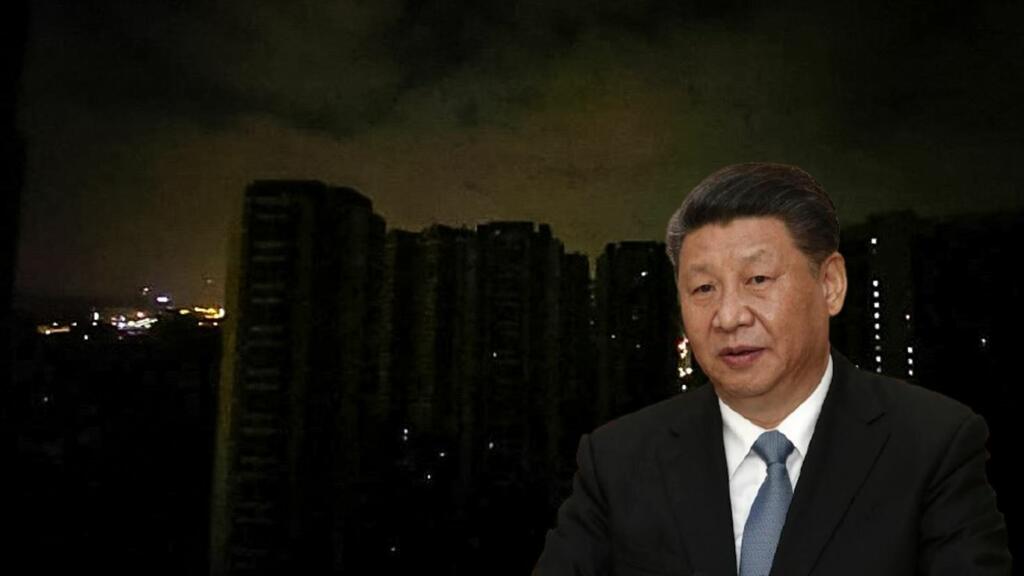- Due to the power shortage in the country, the production of essential commodities like food and fertilizers has become difficult.
- The power shortage has impacted around 44 percent of China’s industrial activity as many industries have been told to operate only 2 days a week.
- The ongoing turmoil in China – from power to real estate, regulatory crackdown to disruption of production – will hurt the country’s image as the “factory of the world”, and it will no longer be the preferred destination for companies and investors.
In the last few months, nothing is going well for China. From Evergrande led real estate crisis to the collapse of tech giants like Huawei, declining exports, and disruption in global supply chains (from which China benefitted massively in the last four decades) to the latest power crisis – everything is going against Xi Jinping-led Middle Kingdom.
Due to the power shortage in the country, the production of essential commodities like food (soybean processing, animal feed processing) and fertilizers has become difficult, and this has led to skyrocketing prices.
The prices of metals like steel, aluminium, silicon, which were already shooting up in the last few months due to demand-supply mismatch, are now growing at an even faster rate because the production of these items has been halted due to power crunch.
Previously China banned the import of Australian coal, which is among the largest supplier in the world. Now amid the power crunch – more than two-third of China’s power is produced by burning coal – it will be forced to purchase costlier coal from other sources such as Russia, South Africa, and Southeast Asian countries.
“Given the coal shortage in the country, we can expect China to ramp up its buying activity and most of it is likely to come from Southeast Asian markets due to proximity,” said Abhinav Gupta, a dry cargo research analyst at Braemar ACM Shipbroking. “Most of these coal producers are at peak capacity, which may tighten the coal market and push up prices.”
Some analysts are even suggesting that China will be forced to swallow its pride and lift the ban on the import of Australian coal. “Soon the Chinese government might be forced into easing the ban on Australian coal, as that would allow more coal to be imported and ease some pressure on domestic coal prices,” said Ralph Leszczynski, head of research at shipbroker Banchero Costa & Co.
The power shortage has impacted around 44 percent of China’s industrial activity as many industries have been told to operate only 2 days a week. The companies around the globe were already shifting their factories from China to other countries, and the power crisis will only hasten the pace of weeding the country out of the supply chain.
“This is going beyond emission control, those who import raw material will suffer, initially it was only 3 heavy energy-consuming provinces which were seeing outages but that has spread to 20 across eastern China, some industries have been asked to work only 2 days a week. This will impact the Chinese economy but also have a cascading effect in the world,” Sharad Kumar Saraf, former president of the Federation of Indian Export Organisations.
The ongoing turmoil in China – from power to real estate, regulatory crackdown to disruption of production – will hurt the country’s image as the “factory of the world”, and it will no longer be the preferred destination for companies and investors.
The impact will be worldwide as the prices of the products will soar amid a shortage of supply. So, Indian consumers will also be affected but as far as producers are concerned, they will benefit immensely. India is AtmaNirbhar when it comes to coal, and this will keep the power production uninterrupted. Moreover, given the availability of items such as coal and steel, the exports are also expected to surge.
Apart from China, Europe and America are also facing an energy crisis and disruption in the supply chain affecting them badly. Amid this global crisis, India remains the only island of calm and stability, and this will positively impact India’s position as an investment and production destination for companies and investors around the world.
